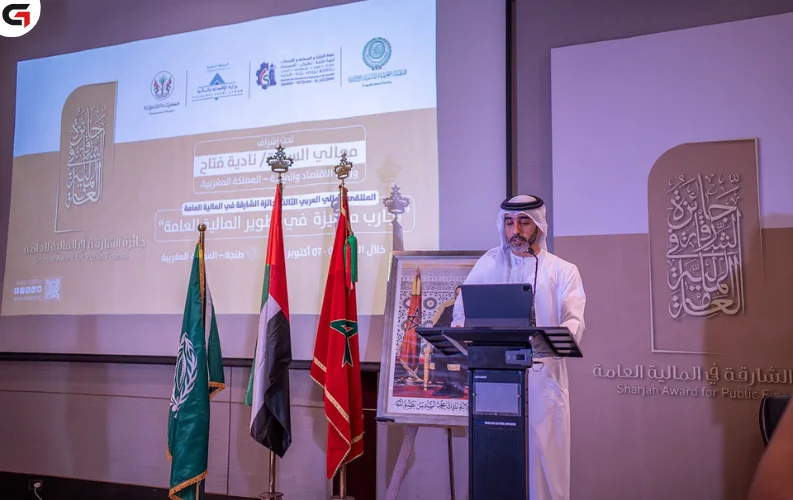The third Arab Financial Forum for the Sharjah Award for Public Finance opened in Tangier, Morocco, on October 8, 2025. Organised by the Sharjah Finance Department (SFD) in collaboration with the Arab Administrative Development Organization (ARADO), the forum ran under the theme “Distinguished Experiences in Developing Public Finance.”
The event brought together ministers, senior officials, and financial experts from across the Arab world to exchange insights and highlight pioneering approaches to financial governance. It served as a regional platform to advance fiscal management, promote cooperation, and share best practices in public finance.
In his address, Dr Nasser Al Hatlan Al Qahtani, Director General of ARADO, said representatives from 13 Arab nations participated in this edition, underscoring the forum’s role in fostering collaboration and building innovative financial systems across the region. He noted that the gathering aimed to present successful case studies from Arab countries and explore strategies for advancing sustainable public finance.
Sheikh Rashid bin Saqr Al Qasimi, Secretary-General of the Sharjah Award for Public Finance, emphasised that public finance is a cornerstone of social and economic stability, and a key instrument for achieving sustainable development. He said the forum reflects the vision of Sheikh Dr Sultan bin Mohammed Al Qasimi, Supreme Council Member and Ruler of Sharjah, whose leadership has continually focused on knowledge-sharing, transparency, and Arab unity in public governance.
Al Qasimi added that the forum acts as a strategic platform to unify perspectives and develop practical solutions to enhance Arab financial systems and their readiness to face global economic changes.
Highlighting Sharjah’s success in adopting performance-based budgeting, H.E. Waleed Al Sayegh, Director General of the SFD, shared how the emirate has linked financial planning to measurable development outcomes. He said the model strengthens accountability and optimises spending efficiency by aligning budget allocations with strategic goals.
“Performance-based budgeting is not just a technical reform but a transformation in governance,” Al Sayegh said. “It connects plans to real-world results, ensuring public spending translates into sustainable growth. For such systems to succeed, strong political will, institutional capacity, and ongoing training are essential.”
He added that continuous benchmarking, data-driven decision-making, and robust frameworks are critical to sustaining transparency and fiscal discipline.
The session concluded with calls to expand regional cooperation and continue reforming financial governance frameworks across the Arab world. Participants agreed that sharing experiences through such forums will help Arab nations advance toward efficient, results-based public finance systems aligned with international best practices.




















